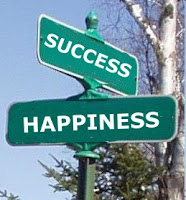Americans spend over $6 billion each year on health and fitness products. Yet, over 60% of the population is considered overweight!
So what's the deal?
You've tried every diet, read all the magazine articles, purchased all the work-out videos, but you're still overweight and out of shape! What's going on?
Well, maybe you're missing the key ingredient... Maybe you're missing the one thing that will get you off the couch, out of the house and into the gym. And what is that one thing?
It's
inspiration.
If you don't have the drive, the motive or the inspiration to produce results, then you'll always be stuck in neutral—thinking, planning and wishing—but never taking action. Inspiration is that
inner-calling that compels you to move out of your
comfort zone and into an area where you can begin to create optimal results.
Bottom line... Inspiration is the electricity that powers your mind and body into action!
Without inspiration coursing through your blood, you're about as powerful as an unplugged lamp!
So how do you
get inspired?
Read on...
1. AWARENESS:
The decision to get healthy requires a commitment to changing your lifestyle and your behaviors. And AWARENESS is always the first step.
90% of overcoming a problem is admitting you have one.
Get honest with yourself and examine your current lifestyle. If you don't like how you look or feel then do something about it! The good news is, there are countless tools, strategies and resources available to help. But you have to be aware of these two things:
- You must WANT to change,
- There are resources to help you do it.
If you want to get results, you've got to get started. They say,"Knowledge is Power" ... but knowledge by itself isn't enough. You know you should eat better and exercise more often, but simply knowing will not create the kind of lasting change you want and deserve.
In other words, knowledge without action is useless.
You can spend thousands of dollars and countless hours on exercise programs and diet plans—filling your head with all the latest knowledge—but unless you take immediate action, you're just wasting time and money.
Stop spinning your wheels. Set a goal for yourself and take some sort of action
today. Remember, the first step is the most important one. Just get out of the house and start moving.
You can begin by simply walking around the block! It doesn't have to be something drastic right now, the key is simply to begin. Realize there is great power in momentum. Once you get the ball rolling, good things can and will happen.
2. EXAMINE YOUR LIFESTYLE
Stop for a moment and examine your life as it is right now.
What direction is your present lifestyle taking you? Is that where you want to go? If you follow along this same path, what will you be like 10 years from now? Will you be happy, healthy, and energetic?
If not, then stop now and adjust your course today.
Just imagine carrying this excess weight around for the next 10-20 years. Can you imagine the painful effect that will have on your body, organs, and emotions?
Consider this ... if you are 40 pounds overweight, that is equivalent to carrying two 20-pound dumbells around with you ALL DAY, EVERYWHERE you go. Can you imagine that? Well, essentially that's what you're doing! No wonder your back, knees and joints hurt!
Now imagine doing that for the next 20 years! I know it's a pretty frightening picture of the future, but hopefully the image will inspire you to start taking better care of your body. If you don't, it will eventually break down. And unlike your car, you can't trade your body in for a new one.
3. MAKE A CHANGE
In the story of
A Christmas Carol, Ebenezer Scrooge is visited by three ghosts. These spirits take Scrooge on a tour of his life: past, present, and future. At the end of this journey through time, Scrooge realizes that unless he changes his ways, the future will be very grim. The spirits must have had some background in psychology because their method proved very effective! In one night they completely re-conditioned a man's behavior and lifestyle.
Of course this story is a work of fiction, but you can actually learn a valuable lesson from it to make quick and lasting changes in your own behavior.
If you continue to live an unhealthy and sedentary lifestyle, what will your life be like 15 years from now? Are you on the path to heart disease, diabetes, or even worse?
My intention is not to scare you, but unless you get leverage on yourself, you won't have the necessary drive to make a change. In other words, if your present behaviors are not supporting you, then figure out a way to generate new behaviors and thus new results.
How?
4. PROGRAMMING YOUR MIND FOR SUCCESS
Begin by linking up massive amounts of pain to your current behavior, just like the spirits did with Scrooge. For example, if you want to stop overeating, train your mind to associate pain and discomfort to that negative behavior. Your mind has a natural tendency to move away from pain and toward pleasure. This is a basic principle in human behavior. So if you truly believe that overeating will cause pain, then you'll stop overeating. But the belief must be strong and real.
How do you convince yourself? Start by making pictures in your mind. Your imagination is your most powerful tool.
Are you happy with the way you look when you get out of the shower? Does the image cause a little bit of pain or maybe some discomfort? If so, make that pain more intense. Tell yourself, "I've had enough and I'm not going to take it anymore!" This will inspire your brain to start moving in a new direction.
Now, picture your ideal self. Imagine how you will look and feel after dedicating yourself to a fitness and nutrition program. Go ahead, imagine right now looking in the mirror at your new strong, lean, and powerful body. How does it make you feel?
That picture probably feels a lot better than the first one, doesn't it?
Now, hold that image in your mind. Make the picture big and bright and full of detail and emotion. Once you replace the old picture of yourself with the new, empowering picture, then your mind will begin supporting you. It will begin moving toward your new ideal self, helping make it a reality!
The brain has amazing powers, but you have to take control of it. Start running your brain instead of letting your brain run you. It will do whatever you tell it to do. Just make sure your mental pictures and self-talk are supporting you in achieving your goals. As Ralph Waldo Emerson said...
"We become whatever we think about."
Why are you overweight and out of shape?
Simply put, weight gain is caused by ingesting more calories than you burn. When the imports outweigh the exports you're obviously "overstocking" your body. As a result, you gain weight. That's a simple answer regarding the physical aspects, but the purpose of this post is to examine the mental aspects. You see, right now your brain believes that eating foods that are fried, high in fat, and high in sugar will bring you pleasure.
Do you agree? Isn't it fun and pleasurable to eat a big piece of chocolate cake or maybe some fried chicken? Of course it is. And your brain wants to move towards foods and behaviors that make you feel good.
After all, the ultimate desire in life is the desire to feel good. But what you need to do is re-program your brain to see these foods as they really are... unhealthy. They're pushing you further and further away from your goal of achieving optimal health. They may bring you short-term pleasure, but our goal is to develop habits that will support long-term health. And as long as you place more emphasis on short-term pleasure than long-term health, you will continue to be overweight.
Now, I'm not saying that you can never eat a piece of cake, but learn to do it in moderation. Learn to read nutrition labels. Be aware of what you're putting into your body. And train your brain to believe that unhealthy foods will ultimately cause pain and discomfort down the road.
Remember... obesity, heart disease, diabetes... these are just some of the painful effects of unhealthy eating habits.
Bottom line... associate pleasure to good health and pain to sugary, high-fat foods. Constantly tell your brain that the emotion of eating food will NEVER overpower the emotion of looking and feeling great. If you adopt that mentality and truly believe it, then you'll be well on your way to achieving the results you want and the life you deserve!
What about you? Is there a bad habit you have overcome? How did you do it?
 By Patrick Mahan
By Patrick Mahan















